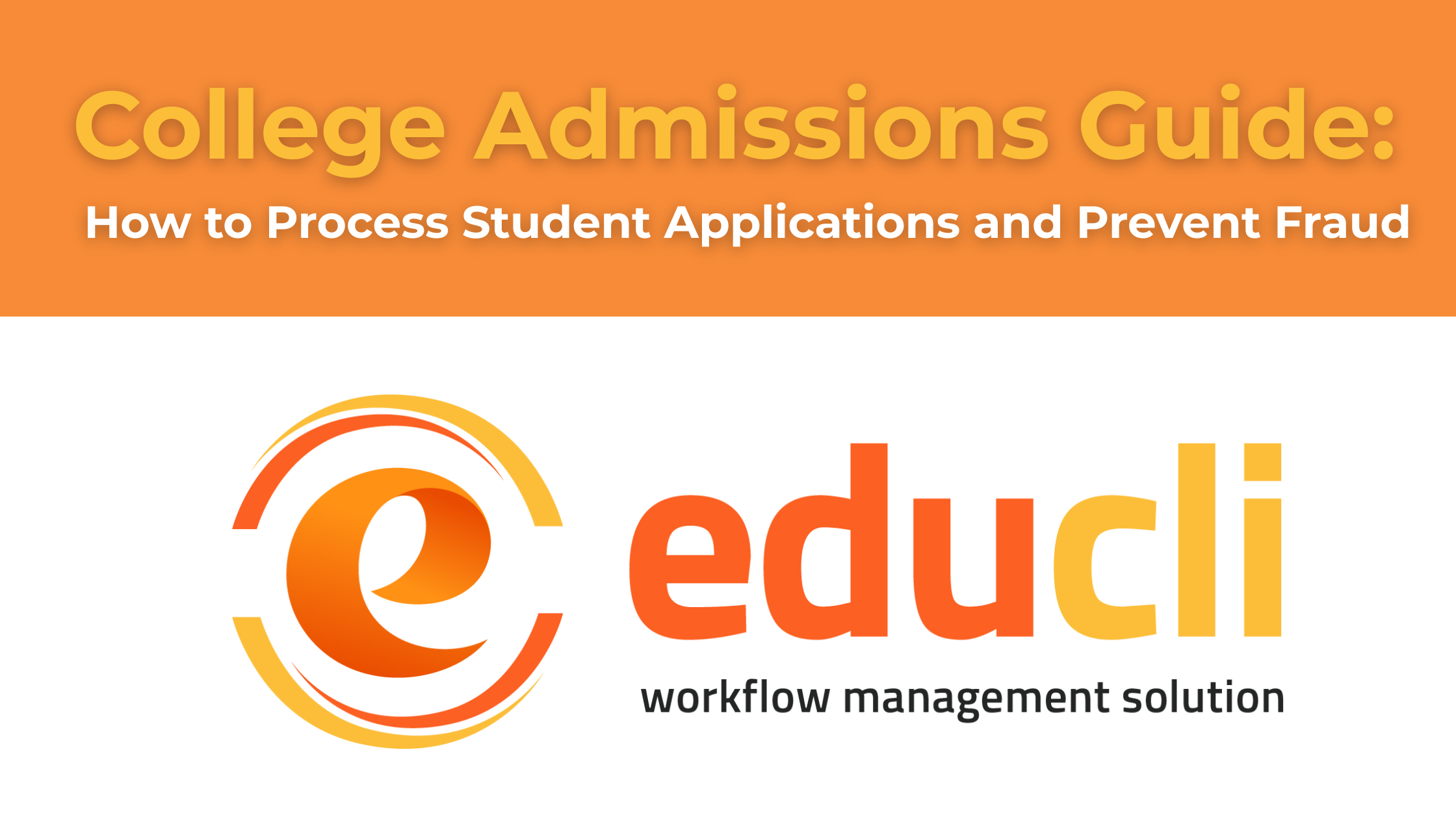Step 1: Initial Application Review
Checklist:
- Confirm all required documents are submitted:
- Passport
- Academic transcripts/certificates
- English proficiency (IELTS/PTE/etc.)
- Statement of Purpose (SOP)
- Financial evidence (if applicable)
- Ensure documents are consistent in name, dates, and format.
- Flag unusual cases (e.g. gaps, sudden change in study field, overqualified applicants).
Educli Tip:
Educli’s online application form helps streamline this step by collecting all required documentation, including passports, SOPs, education history, and financial data — in one secure place. Admins are guided through a checklist and prompted if any documents are missing or inconsistent.
Step 2: Document Verification
Academic Documents:
- Cross-check institutions through official portals.
- Contact issuing institutions if suspicious.
- English Tests: Use official portals (e.g., IELTS, PTE) to verify scores.
- Financials: Watch for repetitive or unusual formatting. Request further information if required.
- Check resume.
Educli Tip:
Educli integrates a document collection and comments section, allowing your team to leave notes, highlight concerns, and upload verified versions or translations.
Step 3: Genuine Temporary Entrant (GTE) Screening
Interview Questions:
- Why this course/institution?
- How is this course going to help you in the future?
- Is there a significant improvement in your job prospects after this course?
- What’s your post-study plan?
- How are you funding your study?
- Are you bringing any family members?
Red Flags:
- Age of the applicant
- Previous studies and jobs don’t align with the course
- Bringing family members
- Short courses (E.g. ELICOS 16 weeks only)
- English level lower than claimed on application
- Identical GS letters from the same agent
- Edited documents or unofficial seals
- Unrelated financial sponsors
- Pushy agent behaviour
Step 4: Agent Due Diligence
- Is the agent approved/listed?
- How many applications have they submitted?
- What is their visa success rate?
Educli Tip:
With Educli’s agent dashboard, you can track agent performance, see historical application quality, and identify patterns of high-risk behaviour or visa refusals — making decisions backed by data, not guesswork.
Step 5: Conditional Offer & COE
Only issue COEs when:
- Application is fully confirmed
- GS test passed
- Payments and documents verified
Educli Advantage:
Issue conditional or full offers directly from Educli and manage COEs within the same system. This keeps your compliance trail intact and organised.
Step 6: Post-COE Monitoring & Feedback Loop
Track:
- Visa refusal outcomes
- Arrival and course commencement
- Onshore performance and visa misuse
Educli Tip:
Educli’s reporting features make it easy to monitor student progression, update agent feedback, and support your compliance team with real-time data.
Final Word
Preventing fraud isn’t just about saying “no.” It’s about building a robust, transparent, and intelligent system — and with platforms like Educli, colleges can take back control and make confident, data-backed decisions from offer to COE.
#InternationalEducation #RiskRatings #StudentVisas #Compliance #ELICOS #VET #RTO #Educli #ImmigrationPolicy #EducationProviders





Leave A Comment